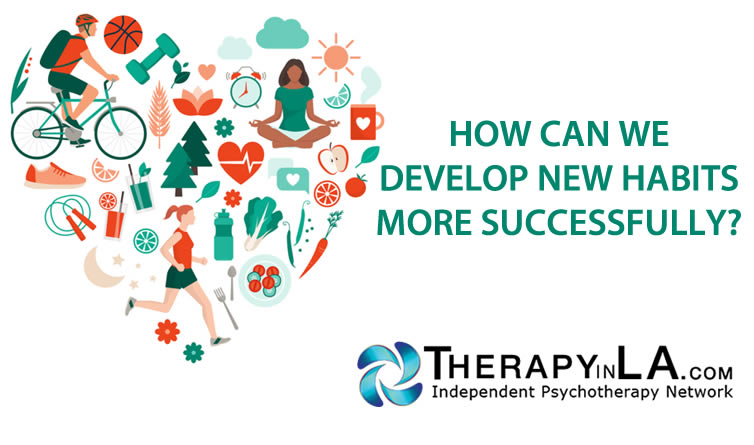HOW CAN WE DEVELOP NEW HABITS MORE SUCCESSFULLY?
HOW CAN WE DEVELOP NEW HABITS MORE SUCCESSFULLY?
By Alan M. Solomon, Ph.D.
The recent blogs about “languishing” and “flow”, as part of our entry into this “new normal”, post-pandemic life, can be enhanced with considering how we can develop better habits (https://www.nytimes.com/2020/02/18/well/mind/how-to-build-healthy-habits.html ). Many of us start with broad resolutions, such as for New Years, to lose weight, exercise alot, save a given amount of money, or read more instead of watch TV or play videogames. Such resolutions flounder rather quickly most times because they lack the “steps needed to set ourselves up for success”.
Stack your habits
Connect a new habit with and already existing one. Morning routines are often well-established, as part of starting our workday. A morning cup of coffee can be tied to a brief mediation, say one minute at first; that one minute can then be extended to two, five and more as the practice gets strengthened. While brushing your teeth, you might stand on one foot to work on your balance at the same time.
Start small
Major changes in behavior demand a high level of motivation that often lapses rather quickly. Start with a small change that can be accomplished more regularly. To begin an exercise regimen, start with a walk around the block on a frequent basis, for example. As this gets established, it can be gradually expanded in length, vigor, and frequency. With saving money, make your own morning coffee for example, and put the usual cost aside in savings; those few dollars will be more meaningful money on a weekly or monthly basis.
Do it every day (or frequently)
Even when done daily, it takes time to establish a new habit One study found that it can take from 18 to 254 days to establish a new habit. The most common timeframe was 66 days – two months! Practicing a new habit daily shortens that time to get it established as a regular routine.
Make it easy
Move the possible obstacles out of the way ahead of time. To make it easier to make your own morning coffee, make it part of the nightly routine to clean up the kitchen to set up the coffee for the morning; if the coffee maker has a timer, it can turn on automatically, or you just have to start it in the AM when you wake up. If you are committed to going to the gym in the AM, pack your gym bag the night before to make it easier in the morning.
Wendy Wood, Ph.D. (Good Habits, Bad Habits: The Science of Making Positive Changes That Stick), calls this removing “friction” that gets in the way of good habits. If you ease those complications, it gets easier to establish and maintain better habits. Amazon has the “one click” button for example that smooths the process of purchasing. Marketing experts use this technique all the time, to great success. Why can’t we do so for our own benefit?
Reward yourself
Some behaviors have an immediate reward built in, such as a fresh mouth from brushing our teeth. But, a lot of new behaviors have some delay before there are rewards. Weight loss takes time, for example, as does the accumulation of savings or the benefits of meditation. Providing more immediate rewards helps establish and then maintain a new habit before the inherent rewards develop: exercise with a friend to make it more supportive and fun, for example.
Therapists with IPN are very focused on supporting new habits that improve the quality of our clients’ lives. Our training and years of experience have taught us to be “cheerleaders” for improvements in the quality of life our clients strive for.
Alan M. Solomon, Ph.D. is a clinical psychologist in private practice in Torrance, CA. A member of the Independent Psychotherapy Network, he can be reached at 310 539-2772, or dralanms@gmail.com In-person and telehealth sessions are available.
Copyright 2021 by Alan M. Solomon, Ph.D.

